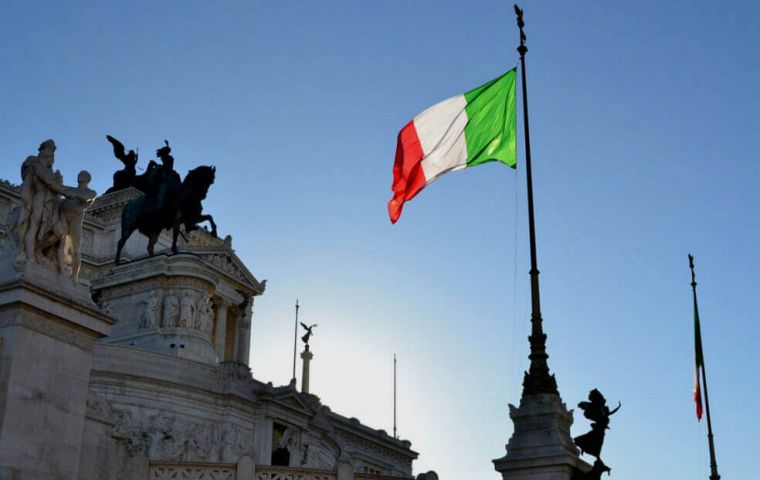MercoPress. South Atlantic News Agency
Italian economy in recession, and likely to continue during the year
 Italy's stats office said agriculture, forestry, fishing and industry had all contributed to the economic downturn, while a rise in net exports failed to offset those declines
Italy's stats office said agriculture, forestry, fishing and industry had all contributed to the economic downturn, while a rise in net exports failed to offset those declines Italy's economy tipped into recession at the end of last year, according to latest figures. In the final three months of 2018, the economy shrank by 0.2%, following a 0.1% decline in the third quarter, the Istat statistics office said. Italian Prime Minister Giuseppe Conte said the contraction was likely to continue into 2019.
Meanwhile, figures from the EU showed economic growth in the 19-country Euro zone still languishing. Growth in the euro area remained at 0.2% in the final quarter of 2018, the same as the previous quarter and in line with analysts' expectations.
The figures, issued by the Eurostat agency, showed that in the 28-nation EU as a whole, fourth-quarter growth was 0.3%. In contrast to Italy, some other Euro zone economies expanded more than expected, with France and Spain posting growth rates of 0.3% and 0.7% quarter-on-quarter respectively.
Italy's statistics office said agriculture, forestry, fishing and industry had all contributed to the economic downturn, while a rise in net exports failed to offset those declines.
Italy's coalition government was forced to revise its expansionary 2019 budget last month after the European Commission raised concerns about the impact on the country's debt levels.
Italy has the biggest government debt in the EU at more than €2.3 trillion. It is also the fourth-largest government debt in the world. The country's debt burden as a percentage of annual economic activity is second only to Greece in the EU at 132%.
Last week, European Central Bank (ECB) president Mario Draghi said Euro zone economic activity had been weaker than expected and the risks to growth had increased.
Claus Vistesen, chief Euro zone economist at Pantheon Macroeconomics, said that the overall Euro zone figures “don't look pretty, but have been well telegraphed by the hard data and the financial market horror show in Q4”.
“Indeed, it seems to us that markets will be inclined to look at these headline [figures] as good news. They indicate that things probably won't get much worse in the near term - this is a bold assumption, given poor January survey data - and that the ECB will keep rates low for a long time.”




Top Comments
Disclaimer & comment rulesCommenting for this story is now closed.
If you have a Facebook account, become a fan and comment on our Facebook Page!